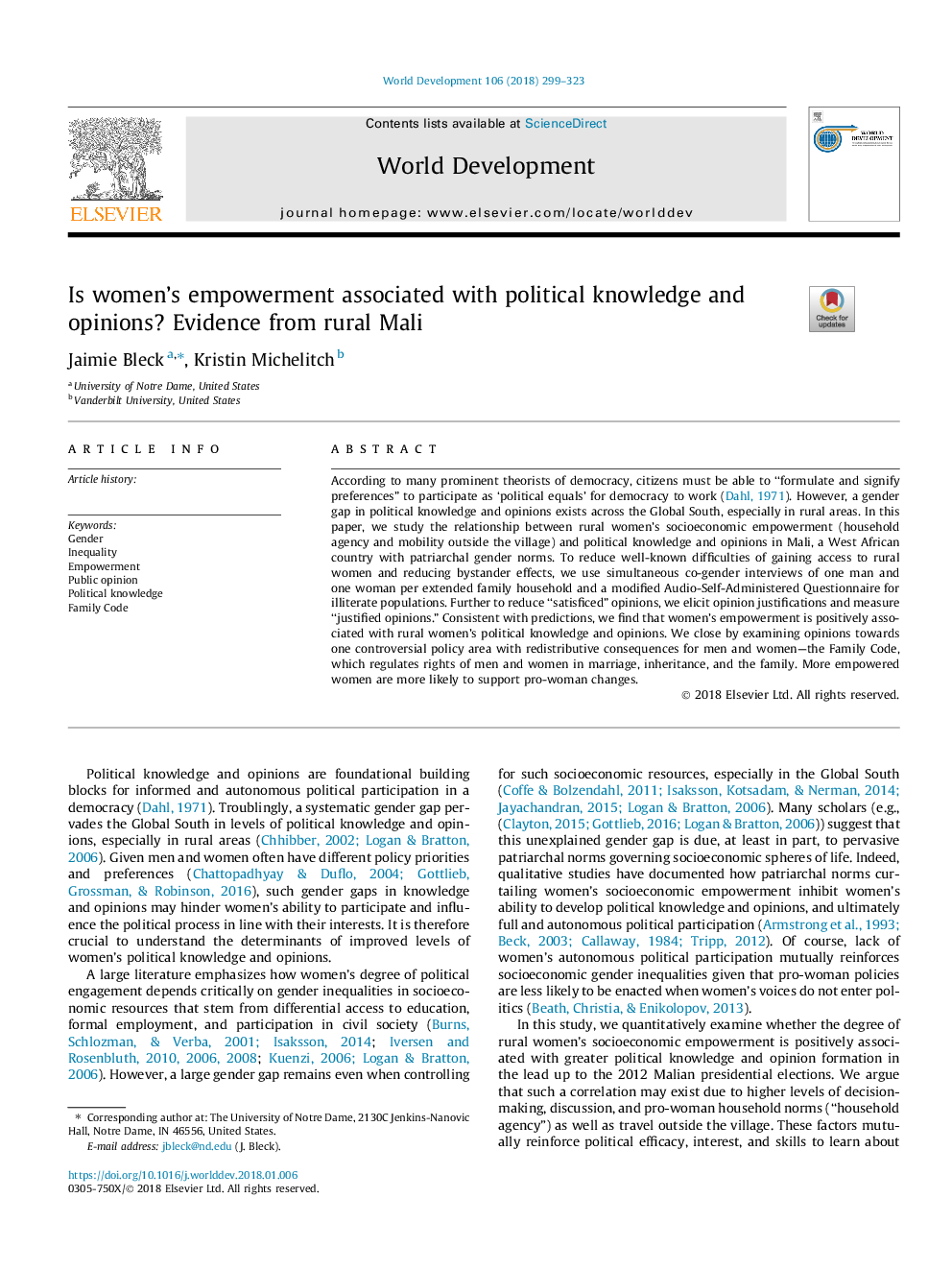| Article ID | Journal | Published Year | Pages | File Type |
|---|---|---|---|---|
| 7391941 | World Development | 2018 | 25 Pages |
Abstract
According to many prominent theorists of democracy, citizens must be able to “formulate and signify preferences” to participate as 'political equals' for democracy to work (Dahl, 1971). However, a gender gap in political knowledge and opinions exists across the Global South, especially in rural areas. In this paper, we study the relationship between rural women's socioeconomic empowerment (household agency and mobility outside the village) and political knowledge and opinions in Mali, a West African country with patriarchal gender norms. To reduce well-known difficulties of gaining access to rural women and reducing bystander effects, we use simultaneous co-gender interviews of one man and one woman per extended family household and a modified Audio-Self-Administered Questionnaire for illiterate populations. Further to reduce “satisficed” opinions, we elicit opinion justifications and measure “justified opinions.” Consistent with predictions, we find that women's empowerment is positively associated with rural women's political knowledge and opinions. We close by examining opinions towards one controversial policy area with redistributive consequences for men and women-the Family Code, which regulates rights of men and women in marriage, inheritance, and the family. More empowered women are more likely to support pro-woman changes.
Related Topics
Social Sciences and Humanities
Economics, Econometrics and Finance
Economics and Econometrics
Authors
Jaimie Bleck, Kristin Michelitch,
